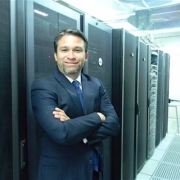

HPE BladeSystem and Dell PowerEdge Rack Servers are prominent competitors in the server industry, mainly used for virtual desktops and servers. While both are recognized for scalability and reliability, Dell PowerEdge often stands out for its flexibility and management capabilities.
Features: HPE BladeSystem offers high performance, reliability, and a modular design for easy scalability and redundancy. Its integration with network operating systems and iLO remote management is notable. Dell PowerEdge Rack Servers provide flexibility, ease of use, and iDRAC for robust remote management to support demanding workloads efficiently.
Room for Improvement: HPE BladeSystem could enhance its scalability and management features in comparison to models like Synergy. It also faces challenges with component compatibility and lacks a unified management interface. Dell PowerEdge Servers need improvement in energy efficiency and documentation clarity. Users seek better pricing and faster technical support responses.
Ease of Deployment and Customer Service: HPE BladeSystem and Dell PowerEdge Rack Servers are primarily used in on-premises deployments. HPE's technical support can be inconsistent, despite its knowledgeable team. Dell generally receives positive feedback but has instances where support needed escalation. Both brands can enhance their support services, with Dell being more consistent in customer satisfaction.
Pricing and ROI: HPE BladeSystem offers excellent ROI in operational expenditure, despite high initial costs. Users find value but desire pricing adjustments. Dell PowerEdge Servers are known for competitive pricing and cost-effectiveness, making them a reliable investment with straightforward pricing structures and licensing.
It is hard to measure the total cost of ownership because we have a distributed environment.
ROI is there, but it's a complex assessment when considering the return on investment from the hardware.
Dell’s technical support is rated between eight and nine.
Customer service provides very good support, with an SLA of about one business day to respond to our tickets.
When we do use Dell's support, they have never ignored an issue.
The scalability of Dell PowerEdge Rack Servers is excellent.
We can add new servers at any time, so the scale-out option is there.
Customers looking for higher densities are starting to lean towards AMD to achieve more cores, higher density, lower wattage, and ultimately a smaller footprint with fewer servers.
Over four years, we've had less than 1 percent downtime.
There is a feature to update the server while it is running, so there is no need to restart.
It is stable.
I do not have to call HP support frequently, which indicates its reliability.
We need to know about any upcoming updates so that we can plan accordingly.
PowerEdge could have more configuration options, such as the ability to combine different CPUs, memory volumes, data storage, and memory.
After the expiration of support, it is sometimes challenging to find parts like hard drives, especially for obsolete models.
In general, there is a 10% to 15% price gap compared to competitors.
They have been stable and running for years without performance downtime or significant disc failures.
Some customers find it cheaper due to contractual agreements, while others find it expensive, especially when scaling up.
The software associated with servers, like VMware subscription licenses, drives costs.
In general, there is a 10% to 15% price gap compared to competitors.
They keep running for at least five to seven years without any issues.
With PowerEdge Servers, I don't need a one-to-one ratio redundancy, which leads to about eighty percent downtime reduction.
One of the valuable features is Active Directory, which helps in managing the network.
The feature I find most valuable is the ease of use.


Dell PowerEdge Rack Servers are designed to optimize performance and efficiency in a data center environment, supporting various applications. Dell stands as the leading vendor in accelerated servers for AI, commanding a 33.8% revenue share. Based on user reviews, Dell PowerEdge Rack Servers supporting tasks from basic web hosting to more demanding applications like data analytics and virtualization. They are engineered to offer high performance, reliability, and scalability. With a focus on automation and integrated security, these servers simplify operations and protect against threats, making them a smart choice for businesses of all sizes.
Dell PowerEdge Rack Servers are a robust, secure, and scalable solution that can meet the diverse needs of businesses, backed by comprehensive support. Benefits to look for in reviews include performance, reliability, scalability, and customer support.
Dell PowerEdge Rack Servers key features include:
In terms of implementation, Dell PowerEdge Rack Servers are used across various industries, from small businesses to large enterprises. They serve as the foundation for IT infrastructure, powering critical applications in healthcare, finance, education, and more. The adaptability of these servers means they can be tailored to specific industry needs, from handling large datasets in research institutions to supporting high-transaction databases in financial services.
HP ProLiant BladeSystem share power, cooling, network, and storage infrastructure via the blade enclosure. Since equipment is not needed for each server, you get a dramatic reduction in power distribution units, power cables, LAN and SAN switches, connectors, adapters, and cables. And you can add the newest-generation technologies by simply changing individual components.
We monitor all Blade Servers reviews to prevent fraudulent reviews and keep review quality high. We do not post reviews by company employees or direct competitors. We validate each review for authenticity via cross-reference with LinkedIn, and personal follow-up with the reviewer when necessary.